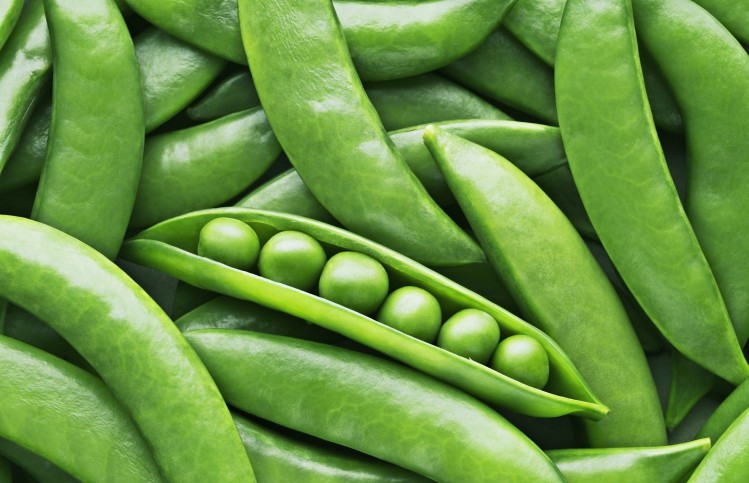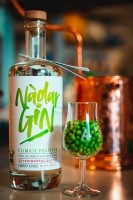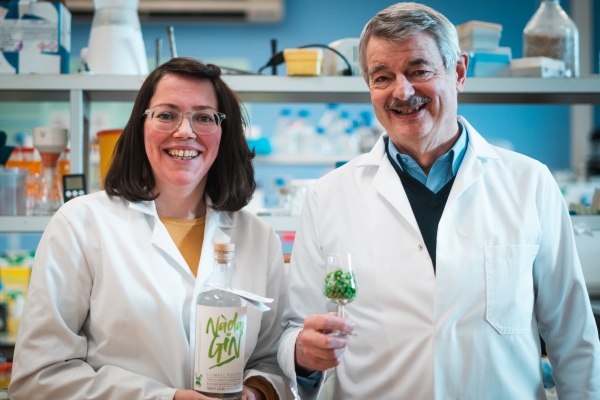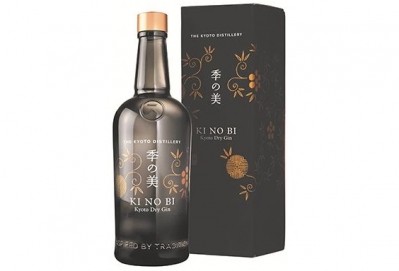The power of peas: Distillery launches world’s first 'climate positive' gin

Arbikie Distillery’s master distiller, Kirsty Black, created the gin as part of her PhD studentship between Abertay University and The James Hutton Institute. The result is Nàdar Gin, which avoids more carbon dioxide emissions than it creates.
Black’s research suggests that peas could be used as a base for many other alcoholic beverages: creating much more environmentally friendly products thanks to their ability to fix nitrogen from the atmosphere.
Nàdar Gin
Taking its name from the word 'nature' in Gaelic, Nàdar is described as a “revolutionary spirit for the drinks industry, at the forefront of the fight against climate change and biodiversity loss - the biggest challenges humankind has ever faced.”
A 700ml bottle has a carbon footprint of -1.54 kg CO2e.
Most gins are made from spirit distilled from cereals such as wheat, barley or maize.
Growing peas, however, means no synthetic nitrogen fertiliser is needed, and so its negative environmental impact on waterways, air and soils is avoided.
Peas also benefit the ecosystem as a whole, improving soil quality and offsetting synthetic nitrogen fertiliser requirements of other crops, which follow peas in the crop rotation.
A pea spirit has a neutral taste: with Nàdar Gin adding in lemongrass and citrus leaf as its botanicals for a ‘fresh and fruity’ aroma. These natural botanicals are grown locally on the Arbikie Estate.
The result is a gin which is 'smooth, silky and refreshing' on the palate, and can be served as a classic G&T or in cocktails.
A 'field to bottle' distillery
John Stirling, Director of Arbikie Distillery said: “Our ethos at Arbikie from our inception has been to try and create world-class premium spirits where all ingredients are grown on our Single Estate farm - minimising our carbon footprint and working with the wonderful home-grown ingredients to create one of the world’s most sustainable distilleries.
“Nàdar Gin goes one step further and looks to make a positive, instead of neutral impact, in terms of long-term sustainability. It also tastes fantastic which is a credit to our distilling team.”
The first edition of Nàdar Gin has been produced using British peas (Pisum sativum L. cv Daytona). Moving forward, the distillery wants to use lower grade peas in the same way it uses wonky veg for its potato spirit - thus creating an ethically-sound and premium market for a crop that otherwise would be treated as a low-value product.
"Ultimately, Arbikie hopes that we will encouraging more and more farmers to grow legumes such as peas and beans and help to reduce climate change and safeguard diversity at the same time," says the distillery.
Carbon positive
Soil fertility: Legumes, such as peas and beans, can meet their entire nitrogen demand via biological nitrogen fixation. Such plants can take atmospheric nitrogen and fix it into biologically useful forms through a symbiotic relationship with bacteria which live in nodules on the legume roots. On harvesting, some of this nitrogen is left behind in the field, to be mineralised and used by the next crop - reducing the amount of synthetic nitrogen fertiliser these non-legumes demand too.
Diversifying crop rotation: The current range of crops in the UK is limited. Increasing the use of legumes benefits the ecosystem in a range of ways, not only improving soil quality as above but also supporting beneficial insects.
Carbon saving potential: Turning peas into alcohol is no different than any other raw material, and simply involves taking the starch component then breaking it down and fermenting it into alcohol. The by-product is known as ‘pot ale’. Pot ale can have a number of fates from anaerobic digestion, a natural fertiliser or as an animal feed. The use of peas versus cereals increases the protein content of the pot ale making it even more suitable as an animal feed. Ultimately it could help Europe become more protein self-sufficient and address food security challenges.
All of the pot ale from Nàdar's first batch has either gone to feed the estate's cows or neighbouring cows. Arbikie is also working with Scottish companies to explore whether the pot-ale protein can be isolated and used as food for humans too.
Give peas a chance
Black’s pea spirit research was published in the journal Environmental International last year: identifying the potential for carbon neutral spirits from peas.
While using peas instead of wheat for the neutral alcohol base reduces the use of nitrogen fertilisers, a large part of the impact comes from using by-products as animal feed to offset the environmental impact of the soybean industry
Europe is dependent on imports to meet 70% of protein-feed fed to pigs, poultry, cattle and fish – and in particular soybean from Latin America. However, soybean cultivation is driving environmental damage such as the destruction of rainforests. Peas hulls and pea gin co-products, therefore, could provide protein-rich animal feed sourced closer to home for the industry.







